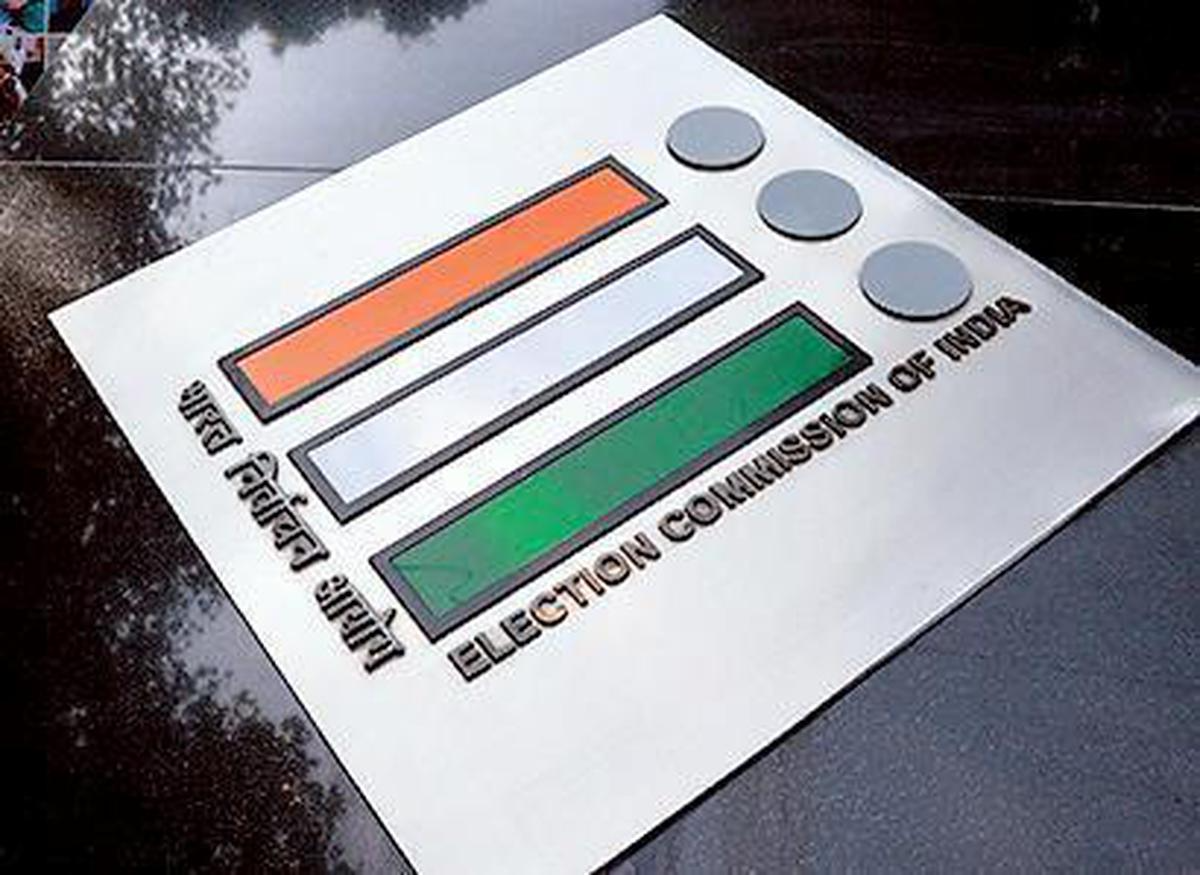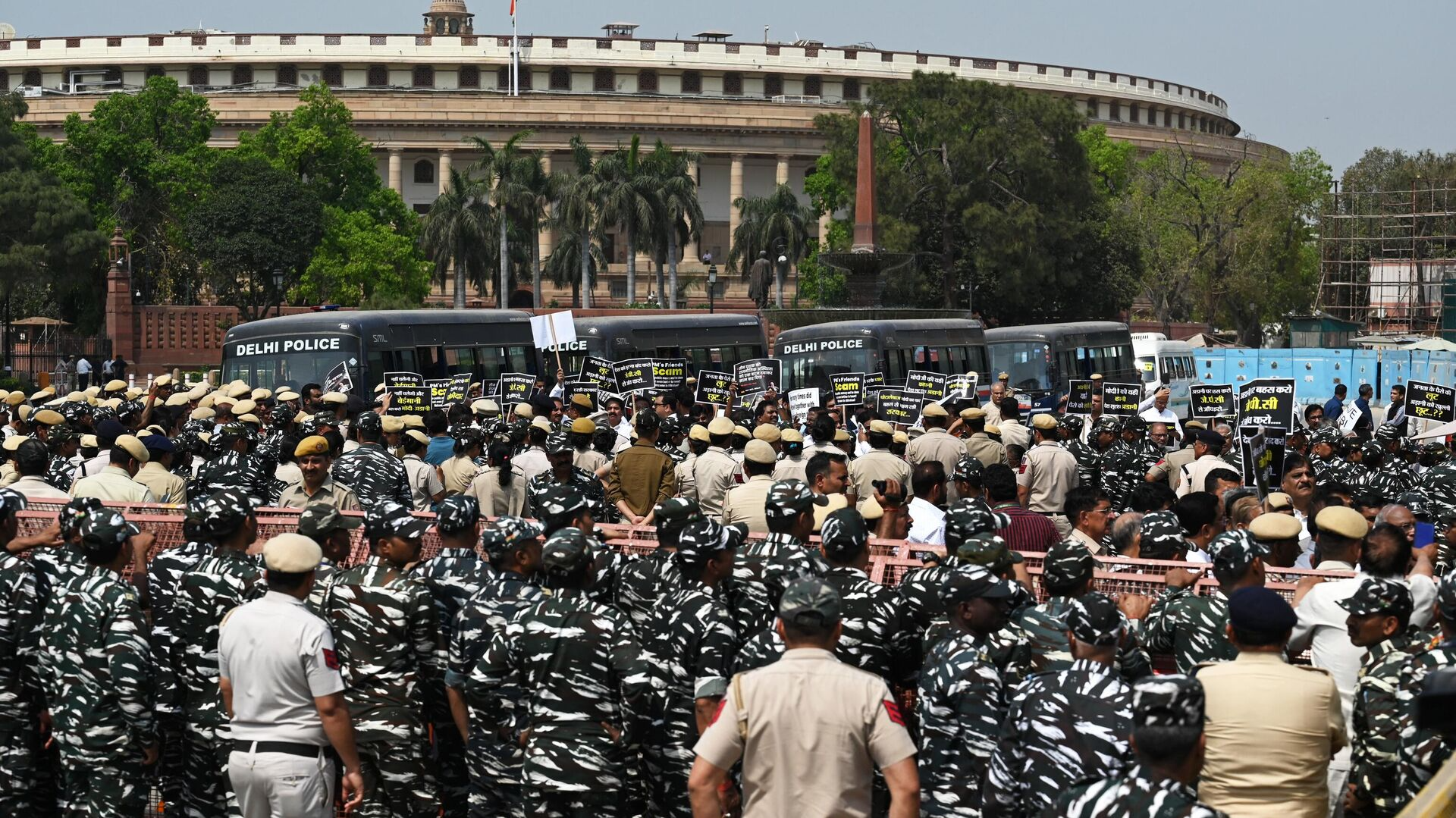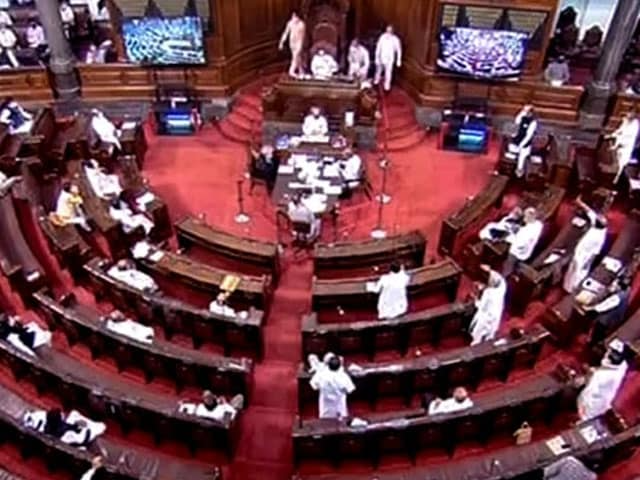Election Commission Launches e-Voting Pilot
Posted On July 11, 2025

In a pioneering move poised to revolutionize democratic participation, the Election Commission of India (ECI) has officially launched a significant e-voting pilot project. While the full implementation of online voting for general elections remains a complex and debated subject, this pilot specifically targets increasing accessibility and convenience for a select group of voters who traditionally face barriers in reaching physical polling booths. This innovative step, particularly spearheaded by state election commissions in coordination with central agencies, aims to leverage technology to make the electoral process more inclusive and efficient.
For years, the ECI has relied on Electronic Voting Machines (EVMs) coupled with Voter Verifiable Paper Audit Trails (VVPATs) to ensure the integrity and transparency of the voting process. However, the challenge of extending voting access to specific demographics - such as senior citizens, persons with disabilities (Divyang voters), pregnant women, seriously ill individuals, and particularly migrant workers - has persisted. These groups often find it difficult or impossible to travel to their designated polling stations on election day. The e-voting pilot is a direct response to this accessibility gap, seeking to use digital solutions to overcome physical limitations without compromising the foundational principles of free, fair, and secure elections.
The most notable development in this regard has come from Bihar, which has become the first state in India to launch a mobile-based e-voting system during its municipal elections in June 2025. This pilot, rolled out across six municipal councils, including three in Patna and two in Rohtas and East Champaran, is a groundbreaking initiative for India. State Election Commissioner Deepak Prasad announced that e-voting was successfully conducted on June 28, 2025, allowing a significant number of registered electors to cast their ballots remotely.
Key features and mechanisms of Bihar's e-voting pilot include-
Targeted Beneficiaries- The system is explicitly designed for specific categories of voters who face challenges in physical voting. These include senior citizens, persons with disabilities, pregnant women, and importantly, migrant workers who might be hundreds or thousands of kilometers away from their registered constituencies. This focus addresses a long-standing demand for absentee voting mechanisms.
Mobile Application-Based Voting- The entire e-voting process is facilitated through secure Android-based mobile applications, primarily "e-Voting SECBHR" (developed by the Bihar State Election Commission) and another app developed by the Centre for Development of Advanced Computing (C-DAC). Voters need to link the app to their mobile number as registered in the electoral roll and complete a prior registration process to be eligible for e-voting.
Advanced Security Measures- Recognizing the paramount importance of security in digital voting, the system incorporates robust measures-
Blockchain Technology- This ensures that votes are recorded and stored in an immutable and transparent ledger, minimizing the risk of manipulation.
Face Recognition and Liveness Detection- To verify voter identities, the system employs advanced facial recognition and "liveness detection" (to prevent the use of static images or masks), ensuring that the person casting the vote is indeed the registered elector.
Digital Encryption and Locks- Votes cast electronically are immediately encrypted and digitally locked, only to be decrypted during the official counting process, maintaining the secrecy and integrity of the ballot.
Audit Trails- Similar to the VVPAT system in EVMs, an audit trail is in place for the e-voting process, allowing for verification and reconciliation if needed.
Restrictions- To prevent fraud, the system typically restricts access, such as allowing only a limited number of registered voters to log in from a single mobile number, and cross-verifying each vote with voter ID details.
User-Friendly Interface- Officials emphasize that the process is designed to be user-friendly, ensuring that even first-time digital voters can navigate it without confusion. This addresses concerns about technological literacy among certain demographics.
The benefits anticipated from the success of such e-voting pilots are substantial-
Increased Voter Turnout- By removing physical barriers, e-voting is expected to significantly boost voter participation, particularly among segments of the population that were previously disenfranchised due to logistical challenges. Reports from Bihar's municipal elections indicated high e-voting turnout, with some migrant voters even casting ballots from locations like Dubai and Qatar.
Enhanced Inclusivity- It democratizes the voting process further by ensuring that every eligible citizen, regardless of their physical location or ability, has a convenient means to exercise their franchise.
Reduced Costs and Logistics (Long Term)- While initial investment in secure e-voting infrastructure is high, it could potentially lead to long-term savings by reducing the need for extensive physical polling booth setups, large numbers of polling personnel, and complex transportation logistics for EVMs and paper ballots.
Faster Result Tabulation- Automated tabulation of e-votes could significantly expedite the counting process, leading to quicker declaration of results.
However, the path to widespread e-voting, especially for state assembly and parliamentary elections, is fraught with significant challenges and ongoing debates-
Security Concerns- The primary apprehension revolves around the vulnerability of electronic systems to hacking, cyberattacks, and data breaches. Ensuring absolute tamper-proof security and maintaining voter confidence in the integrity of the digital ballot remains paramount.
Transparency and Auditability- Critics often raise concerns about the transparency of proprietary software and the ability for independent verification of votes without a physical paper trail in all scenarios.
Digital Divide- Despite India's growing digital literacy, a significant portion of the population, especially in rural areas, may lack access to smartphones, reliable internet connectivity, or the necessary technological literacy to participate in e-voting, potentially creating new forms of disenfranchisement.
Voter Coercion and Secrecy- Unlike the controlled environment of a physical polling booth, remote e-voting raises concerns about potential voter coercion or the compromise of ballot secrecy, as voting can occur outside supervised settings.
Legal and Constitutional Amendments- Full-scale e-voting for general elections would require substantial amendments to existing electoral laws and, potentially, constitutional provisions.
The ECI has historically taken a cautious approach to full internet-based remote voting for general elections, citing concerns primarily related to security and the verifiability of results. Their primary focus has been on refining the EVM-VVPAT system, which is currently considered robust. However, the success of localized e-voting pilots, such as Bihar's initiative for municipal elections, demonstrates a clear willingness to experiment with technology to solve specific accessibility problems.
These pilots are crucial testbeds, allowing the ECI to gather data, identify vulnerabilities, refine security protocols, and build confidence in digital voting systems. The experience gained from these smaller-scale elections will be vital in informing future policy decisions on if and how e-voting can be expanded to broader electoral processes in India, balancing the imperatives of convenience and inclusion with the inviolable principles of electoral integrity and public trust. The digital transformation of India's electoral landscape is a slow but steady process, with each pilot project marking a step towards a more accessible and technologically advanced democratic future.
For years, the ECI has relied on Electronic Voting Machines (EVMs) coupled with Voter Verifiable Paper Audit Trails (VVPATs) to ensure the integrity and transparency of the voting process. However, the challenge of extending voting access to specific demographics - such as senior citizens, persons with disabilities (Divyang voters), pregnant women, seriously ill individuals, and particularly migrant workers - has persisted. These groups often find it difficult or impossible to travel to their designated polling stations on election day. The e-voting pilot is a direct response to this accessibility gap, seeking to use digital solutions to overcome physical limitations without compromising the foundational principles of free, fair, and secure elections.
The most notable development in this regard has come from Bihar, which has become the first state in India to launch a mobile-based e-voting system during its municipal elections in June 2025. This pilot, rolled out across six municipal councils, including three in Patna and two in Rohtas and East Champaran, is a groundbreaking initiative for India. State Election Commissioner Deepak Prasad announced that e-voting was successfully conducted on June 28, 2025, allowing a significant number of registered electors to cast their ballots remotely.
Key features and mechanisms of Bihar's e-voting pilot include-
Targeted Beneficiaries- The system is explicitly designed for specific categories of voters who face challenges in physical voting. These include senior citizens, persons with disabilities, pregnant women, and importantly, migrant workers who might be hundreds or thousands of kilometers away from their registered constituencies. This focus addresses a long-standing demand for absentee voting mechanisms.
Mobile Application-Based Voting- The entire e-voting process is facilitated through secure Android-based mobile applications, primarily "e-Voting SECBHR" (developed by the Bihar State Election Commission) and another app developed by the Centre for Development of Advanced Computing (C-DAC). Voters need to link the app to their mobile number as registered in the electoral roll and complete a prior registration process to be eligible for e-voting.
Advanced Security Measures- Recognizing the paramount importance of security in digital voting, the system incorporates robust measures-
Blockchain Technology- This ensures that votes are recorded and stored in an immutable and transparent ledger, minimizing the risk of manipulation.
Face Recognition and Liveness Detection- To verify voter identities, the system employs advanced facial recognition and "liveness detection" (to prevent the use of static images or masks), ensuring that the person casting the vote is indeed the registered elector.
Digital Encryption and Locks- Votes cast electronically are immediately encrypted and digitally locked, only to be decrypted during the official counting process, maintaining the secrecy and integrity of the ballot.
Audit Trails- Similar to the VVPAT system in EVMs, an audit trail is in place for the e-voting process, allowing for verification and reconciliation if needed.
Restrictions- To prevent fraud, the system typically restricts access, such as allowing only a limited number of registered voters to log in from a single mobile number, and cross-verifying each vote with voter ID details.
User-Friendly Interface- Officials emphasize that the process is designed to be user-friendly, ensuring that even first-time digital voters can navigate it without confusion. This addresses concerns about technological literacy among certain demographics.
The benefits anticipated from the success of such e-voting pilots are substantial-
Increased Voter Turnout- By removing physical barriers, e-voting is expected to significantly boost voter participation, particularly among segments of the population that were previously disenfranchised due to logistical challenges. Reports from Bihar's municipal elections indicated high e-voting turnout, with some migrant voters even casting ballots from locations like Dubai and Qatar.
Enhanced Inclusivity- It democratizes the voting process further by ensuring that every eligible citizen, regardless of their physical location or ability, has a convenient means to exercise their franchise.
Reduced Costs and Logistics (Long Term)- While initial investment in secure e-voting infrastructure is high, it could potentially lead to long-term savings by reducing the need for extensive physical polling booth setups, large numbers of polling personnel, and complex transportation logistics for EVMs and paper ballots.
Faster Result Tabulation- Automated tabulation of e-votes could significantly expedite the counting process, leading to quicker declaration of results.
However, the path to widespread e-voting, especially for state assembly and parliamentary elections, is fraught with significant challenges and ongoing debates-
Security Concerns- The primary apprehension revolves around the vulnerability of electronic systems to hacking, cyberattacks, and data breaches. Ensuring absolute tamper-proof security and maintaining voter confidence in the integrity of the digital ballot remains paramount.
Transparency and Auditability- Critics often raise concerns about the transparency of proprietary software and the ability for independent verification of votes without a physical paper trail in all scenarios.
Digital Divide- Despite India's growing digital literacy, a significant portion of the population, especially in rural areas, may lack access to smartphones, reliable internet connectivity, or the necessary technological literacy to participate in e-voting, potentially creating new forms of disenfranchisement.
Voter Coercion and Secrecy- Unlike the controlled environment of a physical polling booth, remote e-voting raises concerns about potential voter coercion or the compromise of ballot secrecy, as voting can occur outside supervised settings.
Legal and Constitutional Amendments- Full-scale e-voting for general elections would require substantial amendments to existing electoral laws and, potentially, constitutional provisions.
The ECI has historically taken a cautious approach to full internet-based remote voting for general elections, citing concerns primarily related to security and the verifiability of results. Their primary focus has been on refining the EVM-VVPAT system, which is currently considered robust. However, the success of localized e-voting pilots, such as Bihar's initiative for municipal elections, demonstrates a clear willingness to experiment with technology to solve specific accessibility problems.
These pilots are crucial testbeds, allowing the ECI to gather data, identify vulnerabilities, refine security protocols, and build confidence in digital voting systems. The experience gained from these smaller-scale elections will be vital in informing future policy decisions on if and how e-voting can be expanded to broader electoral processes in India, balancing the imperatives of convenience and inclusion with the inviolable principles of electoral integrity and public trust. The digital transformation of India's electoral landscape is a slow but steady process, with each pilot project marking a step towards a more accessible and technologically advanced democratic future.







